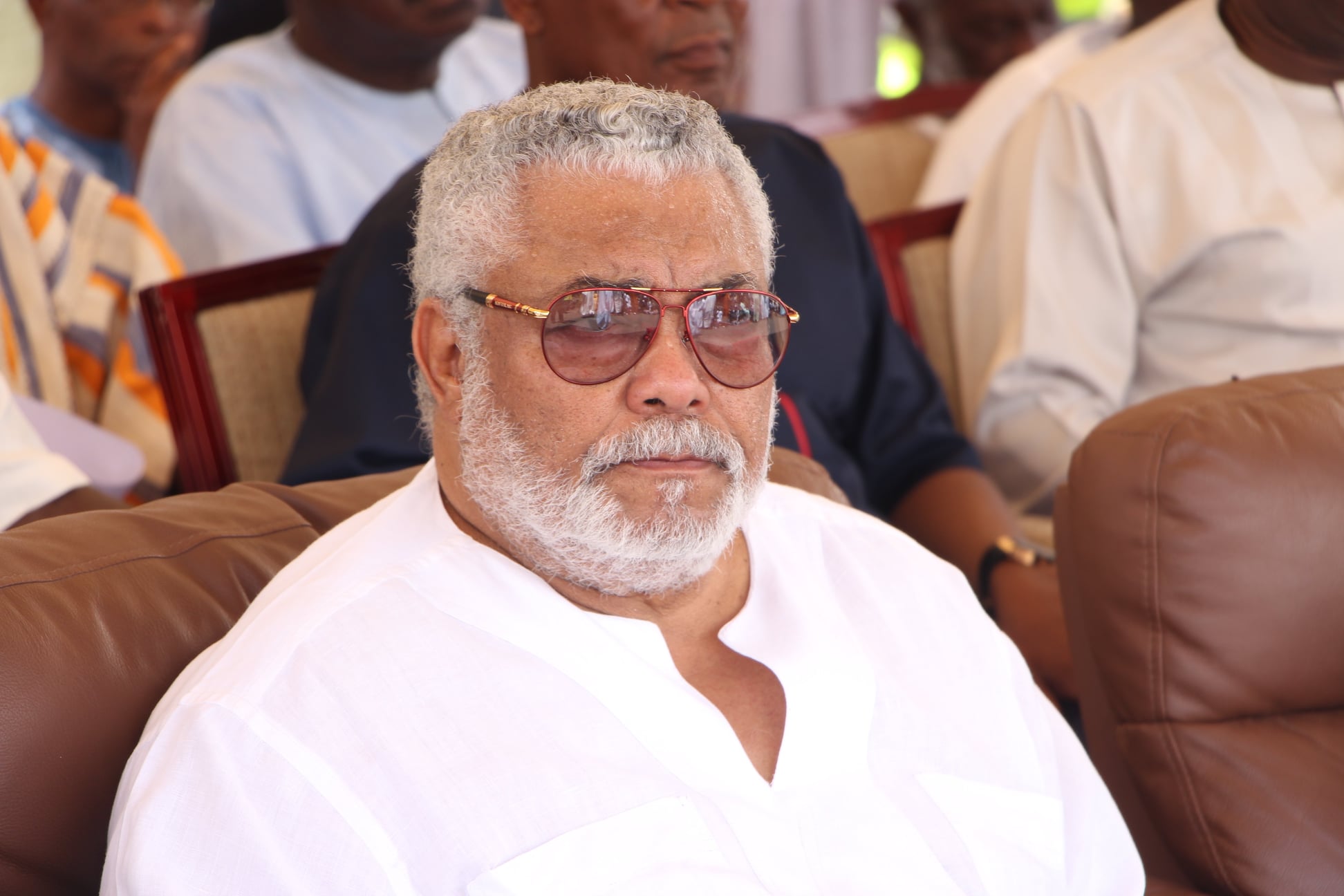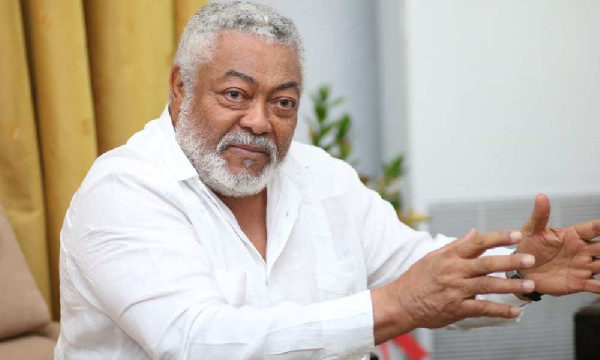Former President Jerry John Rawlings has touted the contributions of his wife Nana Konadu Agyeman-Rawlings to the success of the National Democratic Congress (NDC).
Mr. Rawlings in his response to the book ‘Working with Rawlings’ authored by Kwamena Ahwoi said his wife did a lot for the party contrary to the author’s opinion about her.
The former president in his response expressed displeasure at the contents of the book saying it did not represent the truth.
Ahwoi, in his book ‘Working with Rawlings’, alleged that the former first lady wanted to succeed her husband as president.
“Nana Konadu Agyeman-Rawlings had been harbouring presidential ambitions and in 2000 had believed that she would be the one her husband, Jerry Rawlings, would hand over to”.
But the former president rubbished the claims saying: “When the ‘Swedru Declaration’ was made (prior to the 2000 elections), Nana Konadu Agyeman-Rawlings had in fact been out of Ghana for several months working on a women’s health project for the World Health Organisation (WHO). A fact the author could quite easily have verified where he or any of his proof-readers inclined to do so. She was informed about the Declaration while she was abroad. Surely, logic would indicate that [if] she had any intention to contest that election, she would have been in the country campaigning, or at the very least [would] have set in motion her campaign machinery with which to achieve her Presidential objectives.”

Read the portion of Mr. Rawlings’ on his wife
NANA KONADU AND THE NDC – SACRIFICE AND BETRAYAL
The role, hard work, strategy and organisational talent that Nana Konadu applied to build and propel the NDC to countless victories can never be eroded. The various attempts to not just discount the central role she played, but to also deride her, is symptomatic of the myopic selfishness of characters within the NDC who cannot appreciate the fact that in so doing to pioneers of the Party like herself and others, you have no history to speak of.
To peddle falsehoods in the name of hearsay as a justification for the blatant lies in the book is unbecoming of an academician; albeit with the sole intention of creating the impression that Nana Konadu had a role to play in the so-called Rawlings versus Mills tale.
Nana Konadu played an integral role in the development of both the PNDC and the NDC, and the attempts by the author to denigrate her and nullify the key strategic and organisational role she played is yet another disappointment of the book.
When the ‘Swedru Declaration’ was made (prior to the 2000 elections), Nana Konadu Agyeman-Rawlings had in fact been out of Ghana for several months working on a women’s health project for the World Health Organisation (WHO). A fact the author could quite easily have verified were he or any of his proof-readers inclined to do so. She was informed about the Declaration while she was abroad. Surely, logic would indicate, that had she any intention to contest that election, she would have been in the country campaigning, or at the very least have set in motion her campaign machinery with which to achieve her Presidential objectives. At no point did she indicate to President Rawlings or members of the Party, that she had any intention or inclination to be the flagbearer of the Party. On her return to the country, she rapidly rolled out her campaign strategy and machinery in support of Professor Mills. Yet another fact that can be easily and publicly verified.


